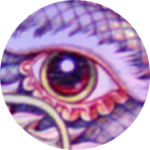Combined DNA, toxicological and heavy metal analyses provides an auditing toolkit to improve pharmacovigilance of traditional Chinese medicine (TCM)
Megan L. Coghlan, Garth Maker, Elly Crighton, James Haile, Dáithí C. Murray, Nicole E. White, Roger W. Byard, Matthew I. Bellgard, Ian Mullaney, Robert Trengove, Richard J. N. All****, Christine Nash, Claire Hoban, Kevin Jarrett, Ross Edwards, Ian F. Musgrave & Michael Bunce
Scientific Reports 5, Article number: 17475 (2015)
doi:10.1038/srep17475
Mass spectrometry | Metabolomics | Next-generation sequencing
Received: 11 August 2015
Accepted: 30 October 2015
Published online: 10 December 2015
Abstract
Globally, there has been an increase in the use of herbal remedies including traditional Chinese medicine (TCM). There is a perception that products are natural, safe and effectively regulated, however, regulatory agencies are hampered by a lack of a toolkit to audit ingredient lists, adulterants and constituent active compounds. Here, for the first time, a multidisciplinary approach to assessing the molecular content of 26 TCMs is described. Next generation DNA sequencing is combined with toxicological and heavy metal screening by separation techniques and mass spectrometry (MS) to provide a comprehensive audit. Genetic analysis revealed that 50% of samples contained DNA of undeclared plant or animal taxa, including an endangered species of Panthera (snow leopard). In 50% of the TCMs, an undeclared pharmaceutical agent was detected including warfarin, dexamethasone, diclofenac, cyproheptadine and paracetamol. Mass spectrometry revealed heavy metals including arsenic, lead and cadmium, one with a level of arsenic >10 times the acceptable limit. The study showed 92% of the TCMs examined were found to have some form of contamination and/or substitution. This study demonstrates that a combination of molecular methodologies can provide an effective means by which to audit complementary and alternative medicines.




 Reply With Quote
Reply With Quote